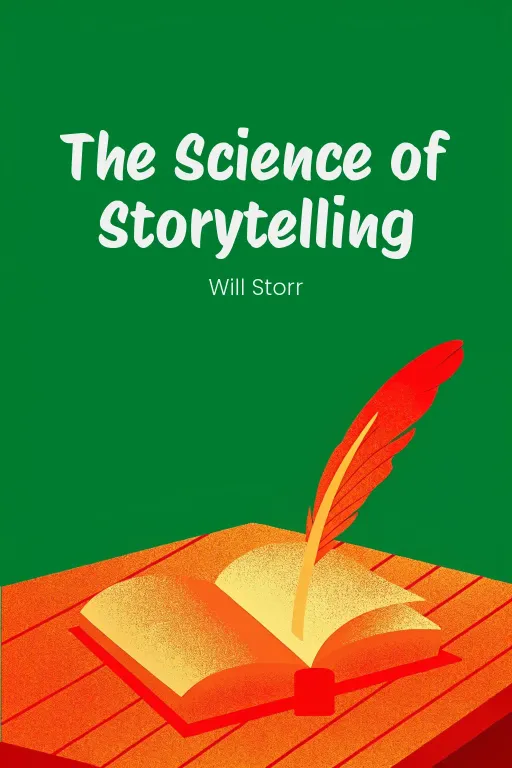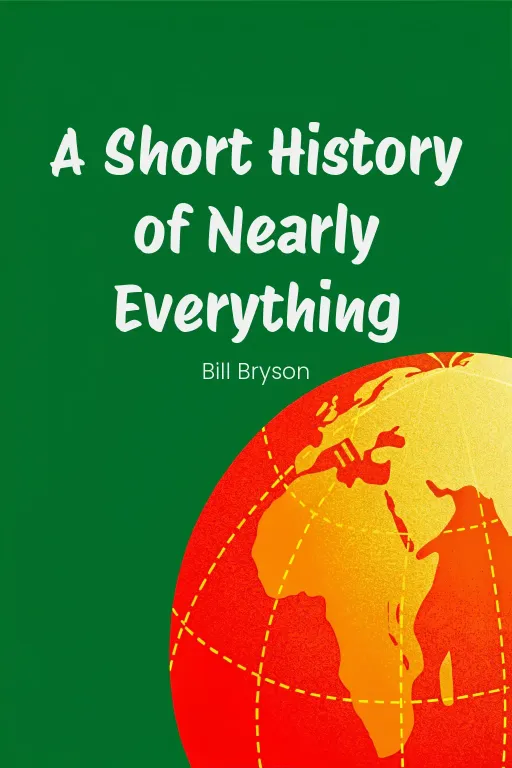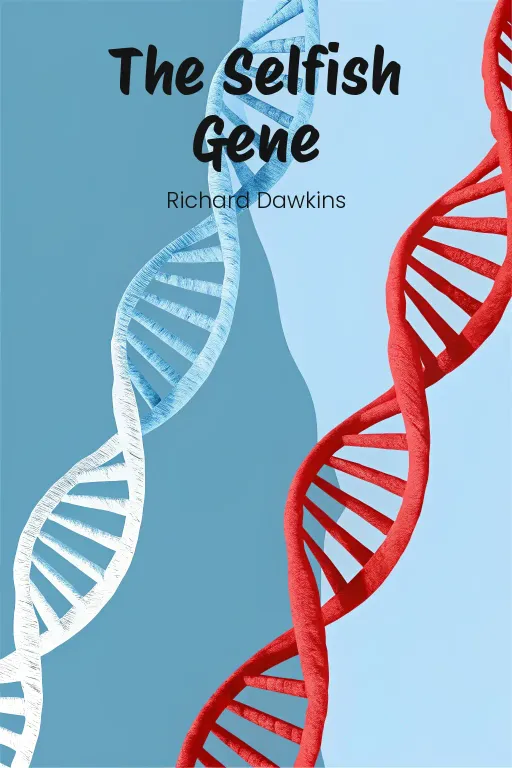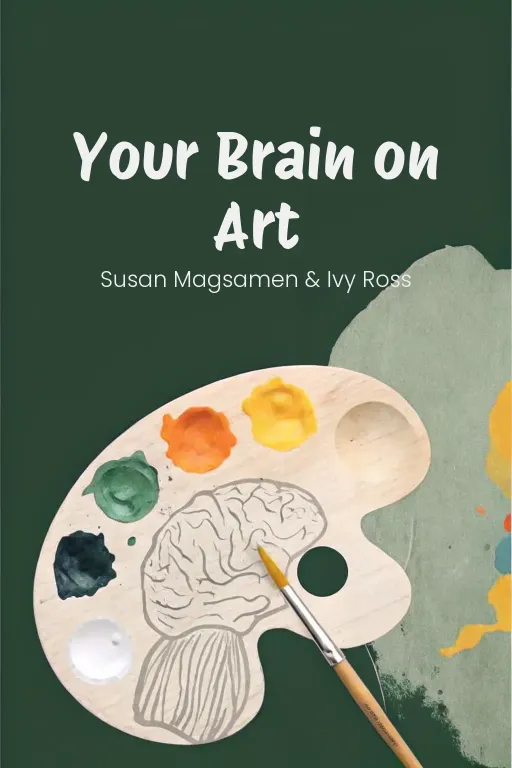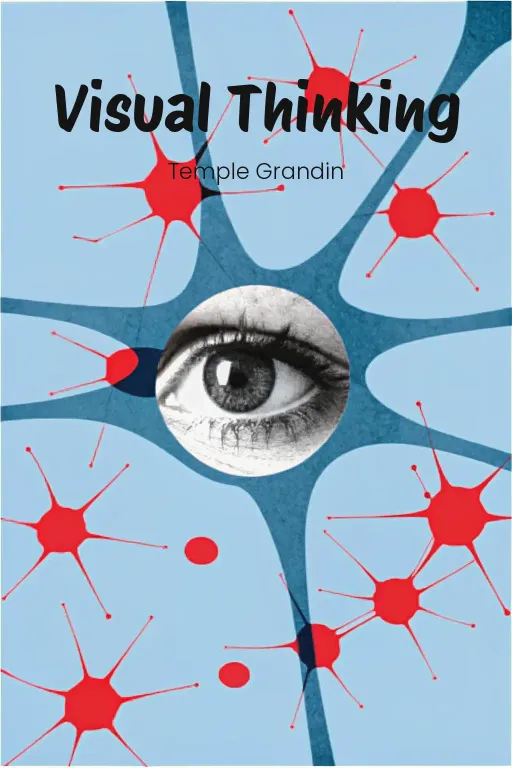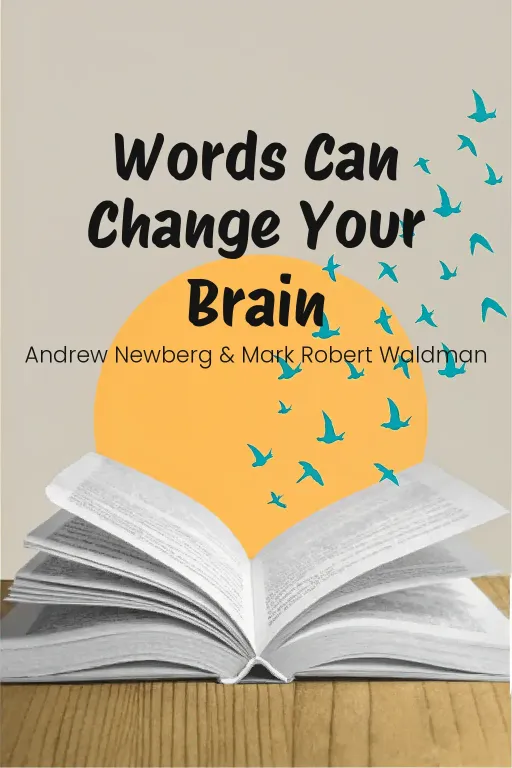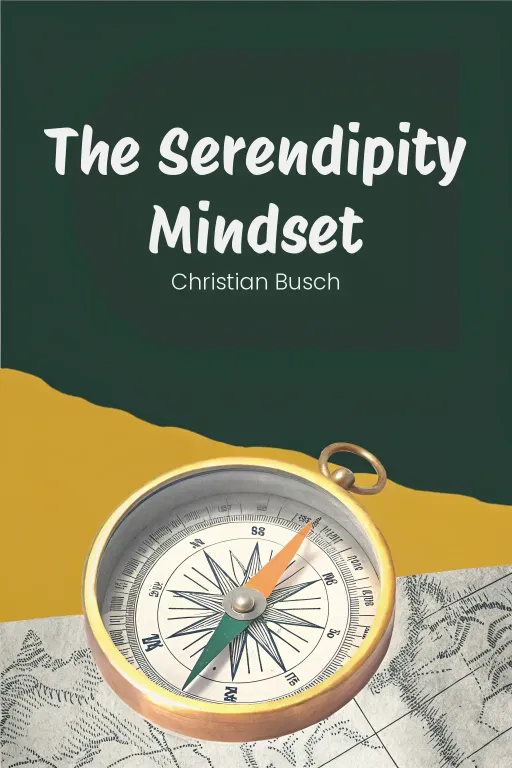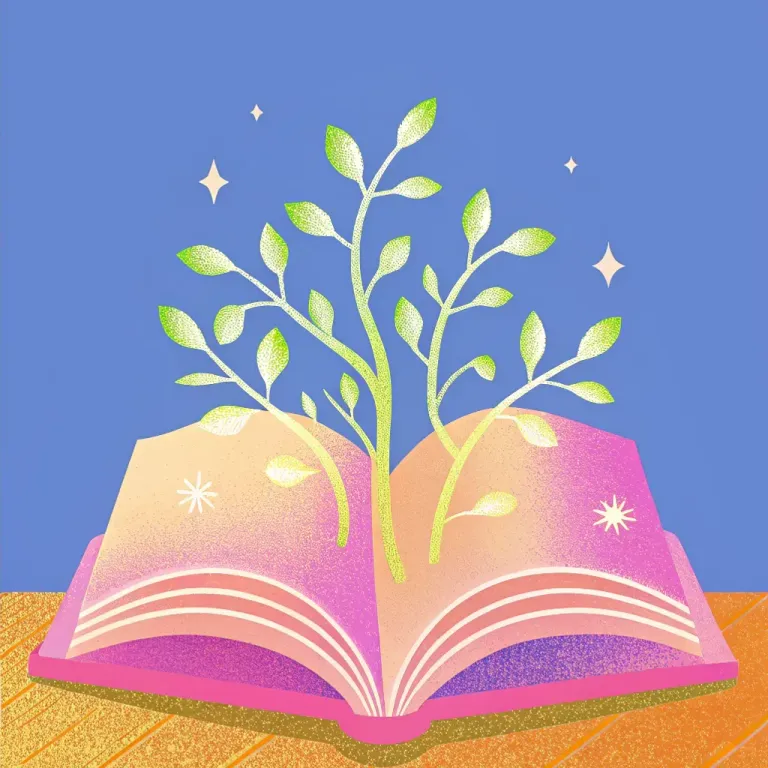
Stories: Your Brain's Cheat Codes to Life?
Podcast by Wired In with Josh and Drew
The scientific underpinnings of a good story
Stories: Your Brain's Cheat Codes to Life?
Part 1
Josh: Hey everyone, welcome back! Drew, you know, I was just reading that our brains are basically storytelling junkies. They're constantly crafting narratives just to make sense of everything. Drew: Hold on—are you telling me my brain is just making stuff up as it goes along? No wonder I get so confused sometimes. So, it’s not just me then? Josh: Exactly! And that’s what we’re exploring today. We're diving into the science behind storytelling – how it’s wired into us, not just for entertainment, but as a fundamental way we process the world. Drew: So, stories aren't just for winding down, they're... essential tools for navigating life, kind of like mental cheat codes? Josh: Precisely! This book “really” digs deep into how stories tap into our psychology and even our biology, shaping our thoughts, feelings, and how we relate to each other. It gets into how stories reflect the complex, emotional, and imperfect nature of humanity and why they resonate across cultures and throughout history. Drew: Okay, let me see if I've got this straight. We’re talking brain science, complex emotions, but with a spoonful of compelling narratives. Josh: Absolutely! Today, we’re breaking down storytelling into three core ideas: first, the power of flawed characters—why are we drawn to them, and why do we see ourselves in their struggles? Drew: Yes! Finally, an explanation. I’ve always said perfect characters are as appealing as those picture-perfect lifestyles you see online — completely unattainable and, frankly, a bit boring. Josh: Right? Next, we’ll explore how our brains operate as these time-traveling storytellers, constantly using narratives to simulate reality and play out potential futures. Drew: Oh, so now my brain is not only an addict; it's also running simulations like some kind of supercomputer. Fantastic. Josh: And finally, we'll tackle the tribal roots of storytelling—how it’s been used to bring societies together, sure, but also sometimes to reinforce divisions. Drew: Stories as a social unifier but also a potential source of conflict. Alright, I’m strapped in, ready for this narrative rollercoaster. Josh: Excellent! Let's dive right in!
The Role of Flaws in Character Development
Part 2
Josh: Alright, Drew, let's dive into flawed characters, because that's where things “really” get interesting. Why are flaws so crucial in storytelling? Is it simply to make characters relatable, or is there something deeper at play? Drew: Yeah, good point. What's the big deal with imperfections? Is it just so we can say, "Oh, they're just like me!" Or is there something more profound going on? Josh: Oh, it's definitely way more than just relatability. Flaws, they're the very lifeblood of a story that grabs you. Think about it, flaws create both internal and external conflict ...which then drives the plot and compels characters to grow. Without flaws, you've got no tension, no stakes, and no real character development. You'd essentially end up with a story that's stuck in neutral and characters that just don't change. Drew: So, you're saying flaws are the narrative engine. If the character were perfect, the story wouldn't go anywhere because … what? They'd solve every problem in Act One and then just chill? Josh: Precisely! Flaws make a character’s journey feel authentic, right? They mirror how we wrestle with our own weaknesses in life. Take Stevens, the protagonist from The Remains of the Day – he’s a perfect masterclass example. Drew: Oh, right, the butler. His flaw is … being too dignified? I mean, is that even a flaw? Sounds more like something you’d put on a resume. Josh: On the surface, yeah, you might think so. Stevens is proud of his professional dignity – he sees it as his ultimate virtue, how he measures his worth. But! That very dedication blinds him to his emotional needs and isolates him. It's what some call a "sacred flaw"— something that starts as a strength but becomes a weakness when it's taken too far. Drew: Got it. So, it’s not just that he’s dignified, it’s that he clings to it like a life raft, even when the thing is clearly sinking? Josh: Exactly. Take the instance when his father collapses during a formal gathering. Stevens chooses to stay focused on his duties instead of caring for his father in a moment of genuine need. He tells himself that his father would have wanted him to prioritize professionalism above personal emotions. Drew: Wow, that's … cold. But I guess, in his mind, he probably thought he was honoring his father, like, "This is what Dad would respect." Josh: Exactly! And that's the brilliance. Stevens genuinely believes he's doing the right thing. That shows you how deeply rooted this flaw is--it totally skews his sense of what truly matters. This moment is what storytelling experts call an “ignition point." It's a crisis that forces a character to “really” confront their inner flaw. So, for Stevens, this event isn't just about his father – it highlights his lifelong struggle to prioritize dignity over any kind of emotional connection. Drew: Okay, but where’s the fallout? When does he realize, "Oh no, I’ve messed this up, and now my life is an emotional wasteland”? Josh: The slow burn is what makes it so effective. Stevens doesn't fully grasp the consequences of his flaw until it's way too late. Later in life, he reflects on his relationship with Miss Kenton, the housekeeper he worked alongside. There was this unspoken affection between them. However, Stevens could never bring himself to act on it because, in his mind, maintaining professionalism always came first. Drew: So, he missed his shot at love because he was too stuck in his butler bubble. That's…brutal. Josh: It is. There's this heartbreaking scene where Stevens is remembering the emotional distance he kept with Miss Kenton. He realizes his rigidity – his inability to be vulnerable – led to a lifetime of regret and unfulfilled longing. When he looks back, his pride in his dignity is overshadowed by all the opportunities it cost him. Drew: That kind of regret “really” hits hard. And I guess the “sacred flaw” thing makes it worse because it wasn’t some obvious vice like greed or jealousy. It was something he genuinely believed was noble. Josh: Exactly. Ishiguro weaves dignity so tightly into Stevens' identity that watching him unravel it piece by painful piece feels like witnessing someone dismantle their entire worldview. His whole sense of self crumbles when he realizes that what he thought was his strength was actually the thing that caused his greatest failures. Drew: And let me guess—there’s no dramatic redemption arc with fireworks, just quiet introspection? Josh: Precisely. Stevens doesn’t get a Hollywood-style resolution. His journey is subtle, so achingly human, and it's much more powerful because of it. Ishiguro uses tools like subtle contrasts to highlight these flaws. Miss Kenton, for example, is warm and expressive, and she's a perfect foil to his stoic behavior. She challenges him, but he resists until it’s too late. Drew: Okay, now I see how flaws don’t just make characters interesting—they make stories matter. Without them, there’s no weight, no emotional punch. Josh: That’s the essence of it. Flaws allow us to see ourselves in characters, to empathize with their struggles and reflect on our own. They elevate storytelling from simple entertainment to a mirror reflecting human complexity. Drew: So, flaws aren’t just cracks in the character—they’re the cracks where the light gets in. Josh: Beautifully said! Flaws are where stories come alive.
The Brain as a Story Processor
Part 3
Josh: So, all of this really leads us to think about how these character flaws interact with bigger stories. It's not just about the characters themselves, it’s also how our own brains process these stories to make sense of the world around us. Our brain’s knack for making narratives, that’s what “really” makes these stories resonate emotionally, bridge different cultures, and even help us be more empathetic and heal. Drew: Okay, so are you saying our brains are basically story-generating machines? Constantly creating stories to make our lives feel, you know, coherent? Josh: Absolutely! Our brains “really” crave order, especially in a world that often feels chaotic. The book “really” delves into the neuroscience of this. It shows how our brains weave together memories, emotions, and all the sensory info we get, into these cohesive narratives. It’s how we find our way in life, connect with others, and even think about what might happen in the future. Drew: Hold on—predicting the future? Are we suddenly fortune tellers now? Josh: Not exactly, but our brains do simulate potential futures. Think about it, when you're figuring out how to nail a job interview or wondering how a risky decision might turn out, you're basically telling yourself a story about the future. It's actually an evolutionary thing, our ancestors needed to imagine possible outcomes to avoid danger or work together effectively. Drew: Interesting. So, storytelling isn't just some artsy thing; it was actually key for survival. Josh: Exactly! It helped early humans understand uncertainty and share important lessons in a way that was memorable and impactful. Neuroscience actually supports this, stories light up so many areas of our brain. Like the sensory cortex, for example, which processes imagery, the limbic system, which brings emotions into play, and the prefrontal cortex, which is all about reasoning and planning. Drew: Wow, so stories are like a full system activation for our brains. All of a sudden, binge-watching shows feels a lot more productive, right? Josh: Well, in a way, yes! It's “really” the immersive nature of stories that grabs us. Like, if you read a description of a character walking through a storm, your brain kind of responds as if you were actually feeling the wind and rain on your skin. Drew: That’s amazing. It's like brain VR, you're not just watching the story, you’re actually living it. Josh: Exactly! This is something called narrative transportation, it’s the intense emotional immersion we feel when we're “really” caught up in a story. Our brain temporarily lets go of disbelief and gets fully invested. That’s why stories are so good at making us feel empathy. Drew: You know, speaking of empathy, this reminds me so much of like Pixar's “Inside Out”, isn't that the ultimate show of how a story can make you cry over imaginary emotions having emotions? Josh: Definitely a perfect example. “Inside Out” uses emotions, like Joy and Sadness, as characters to “really” bring abstract ideas to life. It’s not just fun, it also helps us connect with the universal experience of growing up and dealing with change. When Joy realizes that Sadness is actually important for Riley's emotional growth, you're not just watching it happen, you're actually feeling the importance of positive and negative emotions in your own life. Drew: And it works because you're not just seeing their experience, you're actually feeling it. You're walking through that memory with them or experiencing their chaos firsthand, right? Josh: Totally. That's the brain simulation I mentioned earlier. When stories activate your emotional and sensory pathways, they make you feel like you're actually part of the story, instead of just watching it as an outsider. Drew: Okay, so that explains why we can feel so emotionally drained after a good story. But does that explain why stories stay with us so much? I mean, why can I still remember scenes from books I read in high school? Josh: Oh, absolutely. It has to do with how stories show change and also disruption, which our brains are naturally wired to pay attention to. Think about it, what sticks with you isn't the uneventful road trip; it's when you get a flat tire halfway through. The brain pays special attention to moments of conflict or transformation because they're so important for learning and survival. Drew: So in storytelling terms, it's not the peaceful meadow stroll that pulls us in, it's the screeching tires coming out of nowhere. Josh: Exactly. Conflict “really” sharpens our focus, whether it's in real life or in a story. That's why the most compelling narratives are always about upheaval; like a tragedy disrupting normalcy. Unanswered questions that spark our curiosity or flawed characters who learn to grow. Drew: Got it. And it sounds like this need that we have for change fuels everything, from Shakespeare all the way to modern thrillers. Josh: Absolutely. One of the clearest examples of how our brains process storytelling is in Kazuo Ishiguro's “The Remains of the Day”. Drew: Ah, we're back to Stevens. Let me guess, his narrative gets burned into our brains because his story is full of the exact moments of disruption we were just talking about? Josh: Exactly. Take that scene that I talked about earlier, where his father collapses. That moment is so powerful because it combines high stakes, an emotional crisis, and Stevens' own internal struggle. His decision to put duty before family is a very pivotal disruption that echoes throughout the rest of the story. Drew: And it's not just those big moments, right? His continuing reflections reframe everything and just keep adding emotional weight. Josh: Yes, and the way he rewrites his own memories, convincing himself that his decisions were noble, mirrors how our brains use stories to stay emotionally balanced. Drew: That's fascinating. So, our brains aren't just processing stories; they're actually crafting them to make sense of our own messy, flawed realities. Josh: Exactly! And that's the “real” magic of storytelling, it isn't just a way to entertain ourselves, it's actually a tool for navigating the complexities of being human. From reshaping how we see ourselves to breaking down cultural barriers by fostering empathy, stories are “really” the ultimate human connector. Drew: And the ultimate plot twist? They're all coming from this little storytelling machine inside our heads.
Tribal Dynamics and Moral Complexity
Part 4
Josh: Understanding this neural basis really helps us appreciate the social and even healing roles that storytelling plays. Which brings us to this fascinating idea: tribal dynamics and moral complexity. Storytelling’s roots in human evolution show how central it is to building collective identity, but they also reveal the darker side – how narratives can, you know, reinforce divisions and prejudices. Drew: So, stories are basically double agents then? Building bridges on one hand, and, uh, setting fire to them on the other? Josh: Exactly that. Tribal narratives really expose this tension between creating a shared sense of belonging and enforcing that “us versus them” mentality. It's about how stories shape societal norms, sometimes uniting us, other times, well, fracturing us. Drew: Alright, hand me the magnifying glass. Let's, uh, dissect those bridges and grenades, shall we? Josh: Let's start with the foundational role of stories in tribal cohesion. Picture early human societies, those hunter-gatherer groups just trying to survive in a really harsh world. Stories became their ultimate survival tool – a way to pass down knowledge, teach moral behavior, and promote cooperation. Drew: Right, sharing tips like, “Don’t eat the glowing red berries, Steve. Here’s a cautionary tale to, you know, prove my point.” Josh: Exactly! These stories were really practical, but deeply moral, too. Think about traditional folktales, like Aesop’s fables, or those oral traditions across cultures. They codified what was acceptable behavior – honesty, loyalty, hard work – and flagged what wasn't. They created this shared moral framework that really held communities together. Drew: I'm with you so far; stories build, like, a kind of social glue. But where do things get murky? Josh: When that glue hardens into an exclusive boundary between "us" and "them". Early tribal stories didn't just define the group, you see; they also came with a warning about outsiders—portraying them as dangerous, inferior, or just morally corrupt. This isn’t just theoretical. Think about how folklore has historically framed certain groups. Drew: Let me guess—heroes in the tribe, villains conveniently outside it? Josh: Precisely. Think about medieval European fairy tales. The brave villagers versus the dark, mysterious forest often symbolized the peril of venturing beyond the known, the trusted. The "forest dwellers," witches, or ogres weren’t just monsters, they represented the danger of the unfamiliar. Drew: Makes sense—social evolution favors the cautious. But this is where it gets a little sinister, no? Josh: It really does. These stories – and their moral binaries – aren’t limited to fairy tales, you know. They’re the foundation of propaganda. Nazi Germany, for instance, co-opted folklore to portray Jewish people as the treacherous "villains" threatening the purity of the Aryan "heroes". This manipulation of narrative amplified fear and really justified dehumanization. Drew: So, storytelling becomes a weapon. What starts as tribal loyalty morphs into, uh, say, dangerous tribalism. Josh: Exactly, and the psychology behind it is really fascinating. Neuroscientists have shown that when we hear stories about our "in-group" triumphing or our "out-group" failing, our brain releases these feel-good chemicals like dopamine. Essentially, we're hardwired to celebrate narratives that boost our side. Drew: That’s unnerving, especially knowing how modern media works, you know, with clicks and outrage. Josh: It’s an ancient mechanism playing out in real time. But the silver lining is that storytelling can also challenge these divisions. Stories are empathy machines. They let us step into someone else's shoes–even someone from a so-called “out-group.” Drew: Any examples where stories flipped the script on tribalism? Josh: Plenty. Let's take “Schindler's List”. Centering on an unlikely "hero" – a German businessman who saved Jewish lives during World War II – it reshapes the narrative of that era. Instead of reinforcing us-versus-them divisions, it bridges them, forcing viewers to confront the very human cost of prejudice. Drew: Same with “Black Panther”, right? It doesn’t just celebrate Wakandan culture; it makes us question colonialism, privilege, and even internal conflict within the African diaspora. Josh: Exactly. What's really brilliant about “Black Panther” is its layered approach. It doesn't paint the characters in binary terms. Killmonger, the antagonist, isn’t a caricature of evil—he’s a deeply complex figure whose rage stems from years of oppression and pain. Drew: He’s like the anti-Stevens from “The Remains of the Day”. His flaw isn’t stoic detachment; it’s unbridled anger. But you still… kind of get it. Josh: And that’s the beauty of moral complexity. The best stories don’t give you a clear-cut hero and villain—they force you to sit in the gray area. Killmonger’s actions are destructive, but his pain and his critique of injustice feel almost justified. It’s storytelling at its most thought-provoking. Drew: Sounds like a narrative version of a debate where nobody wins, but everybody learns. Josh: Precisely. These stories hold up a mirror—not just to individuals, but to entire societies. They challenge us to reexamine our prejudices, question our divides, and imagine new ways of seeing each other. Drew: Alright, so tribal narratives are both the original superglue and the original dynamite. But the real kicker is we get to decide how to use them, huh?
Conclusion
Part 5
Josh: Okay, so to wrap up our conversation today, we've really seen how storytelling isn't just entertainment, right? It's fundamentally human. We talked about why flaws are so crucial in characters, and how those imperfections are what make a story relatable, create real stakes, drive growth, and give the story emotional resonance that “really” sticks with you. Drew: Exactly. And then we jumped into the brain, that incredible storytelling machine that's constantly building narratives to understand our lives, predict the future, and even feel emotions. It turns out stories don't just reflect reality, they actually shape how we experience it. Josh: And lastly, we discussed those tribal narratives—a bit of a double-edged sword. Stories can build unity, but they can also create divides. But, they can also break down walls and build empathy if managed carefully. Drew: Which brings us to the heart of the issue: stories are crazy powerful tools. They can unite, divide, heal, harm, challenge, or comfort. But choosing how to use them, well, that's where the real magic and the real responsibility lie, wouldn't you say? Josh: Definitely! So next time you read a book, watch a movie, or even just listen to someone's story, consider what it's “really” teaching you—not just about the characters, but about yourself and the world in general. Drew: And maybe ask yourself, is this story building a bridge or lighting a fuse? Whatever the answer, our love of storytelling is obviously here to stay. Josh: Because it's not just in our heads—it is who we are as people.
